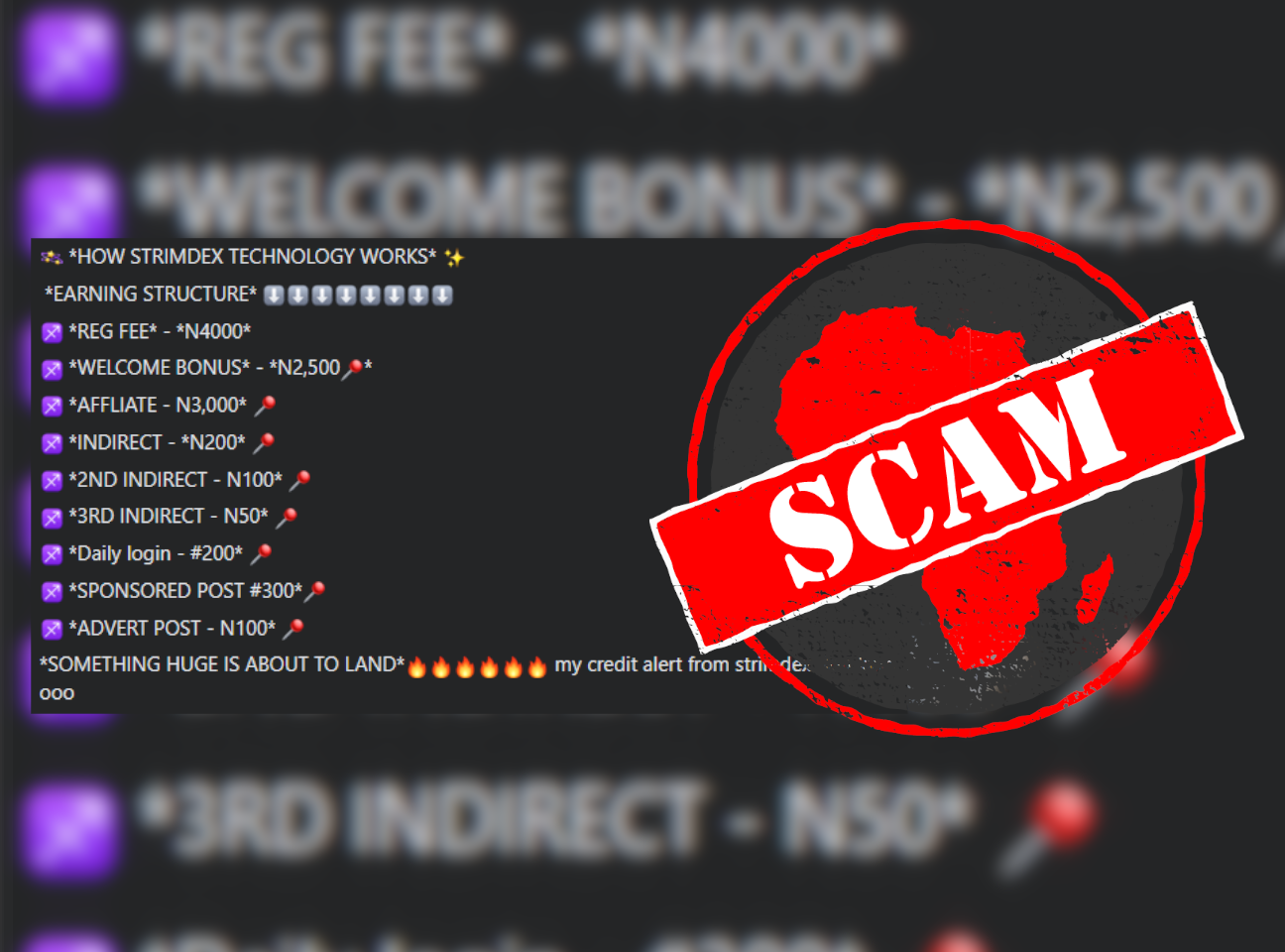IN SHORT: Strimdex Technology, advertised on Facebook, appears to be a platform that gives credit to members for doing minor tasks. But it’s a scam. It’s just a way of getting members to promote its social media presence while charging them a hefty registration fee.
Facebook users are encouraging other Nigerians to join a platform called Strimdex Technology to make money.
According to one user’s post, the “earning structure” includes a N2,500 welcome bonus and N3,000 for “affliate”. Users can also make money from referrals and sharing sponsored posts about the platform. But there’s an immediate catch: the registration fee is N4,000.
The post includes screenshots of the platform’s withdrawal portal and what appears to be proof of payment.
Similar posts can be found here, here, here, here, here, here and here.
But how legit is this platform? We checked.

Signs of a scam
The platform appears to have launched in July 2023, after which many people joined as members or “ambassadors”.
But at the time of publication, the website linked to in some of the posts was inactive.
Africa Check used website verification tools ScamAdviser and WebParanoid to check the legitimacy of “strimdex.ng”. WebParanoid said “domain not found”. ScamAdviser said the “website seems to be unavailable”. It gave the website in question a trust score of 21 out of 100, concluding “strimdex.ng might be a scam”.
However, we found accounts that appear to belong to Strimdex Technology on Facebook, TikTok and Instagram, but all showing little activity since they launched.
Furthermore, a review by 9ja business hub, a Nigerian-based site dedicated to publishing business and financial guides, said that the legitimacy of Strimdex “could be short-lived” and the platform shouldn’t be relied on.
All signs point to the platform being a scam.
For more tips, read our guide to Facebook scams and how to spot them here.
Republish our content for free
For publishers: what to do if your post is rated false
A fact-checker has rated your Facebook or Instagram post as “false”, “altered”, “partly false” or “missing context”. This could have serious consequences. What do you do?
Click on our guide for the steps you should follow.
Publishers guideAfrica Check teams up with Facebook
Africa Check is a partner in Meta's third-party fact-checking programme to help stop the spread of false information on social media.
The content we rate as “false” will be downgraded on Facebook and Instagram. This means fewer people will see it.
You can also help identify false information on Facebook. This guide explains how.




Add new comment